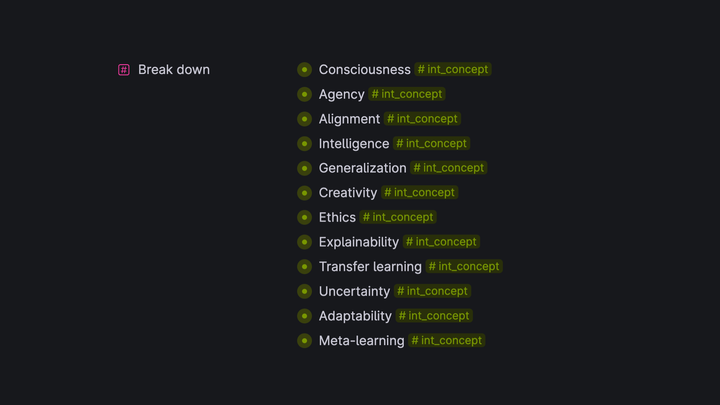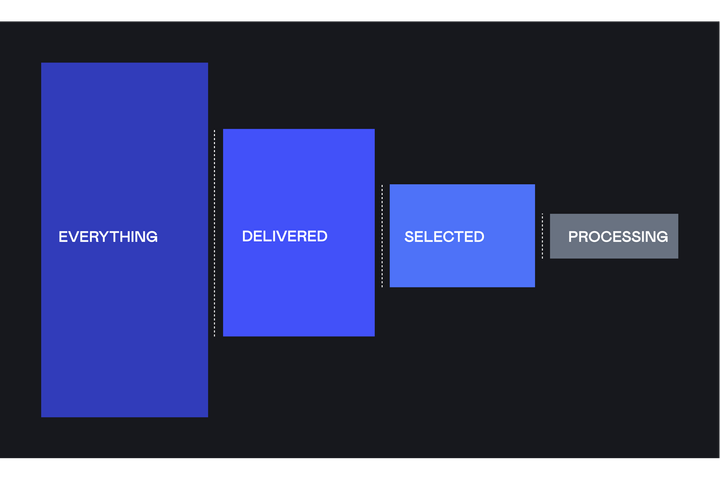Hey 👋 — Andrew is here.
Today’s issue of Tools For Thought I explore how AI is enhancing our cognitive abilities related to sensemaking.
Issue will take about 5 minutes to read. Hope you enjoy it!
Today, sensemaking is crucial. More than ever before.
- We are overloaded with information
- We're dealing with tons of fakes & conspiracies
- We face wicked problems & meta-crisis
Even everyday problems are growing increasingly complex.
Things like nutrition, health, children's education, and investments.
- Do antidepressants work?
- Should you own or rent?
- Is the keto diet good for you?
- Should you homeschool your kids?
There are no clear answers to these questions.
Instead of dealing with facts, we are dealing with probabilistic cues and Bayesian inference. We get more and more scientific knowledge on these issues every year. But some studies are basically conflicting.
And we need new tools to make sense of it.
Sensemaking
Sensemaking is basically an ability to transform scattered data, fragmented information, and raw experience into mental models, coherent stories, and shared understanding.
I've been studying sensemaking actively since the COVID crisis emerged three years ago.
However, my perspective changed dramatically in May 2022.
When I saw this:

Some context:
In 2012 Andrej Karpaty shared a blog post The state of Computer Vision and AI: we are really, really far away.
Using the image of Obama stepping up on scales as an example, he demonstrated the challenges that computer vision technology faced at the time.
Fast forward 10 years, and here we are. Deepmind Flamingo basically solved the case.
Flamingo and other great technologies such as ChatGPT/GPT-3 and Gopher opened the door for us to Commonsense AI:
- It possesses an extensive amount of common knowledge
- It can derive meaning (contextual, cultural) from social interactions
- It can produce coherent & useful explanations of complex phenomena
I would argue that Commonsense AI is the ultimate Tool For Thought and the foundation for augmented sensemaking.
Of course, we have already employed AI in sensemaking by applying ML to data analysis and pattern recognition.
But this is a whole new level.
Next, I want to highlight specific processes related to sensemaking that can already be improved significantly by AI.
Synoptical reading and quick knowledge extraction
Working with a multiple sources. Getting a wider sense of the topic. Using several sources. Identifying and filling knowledge gaps.
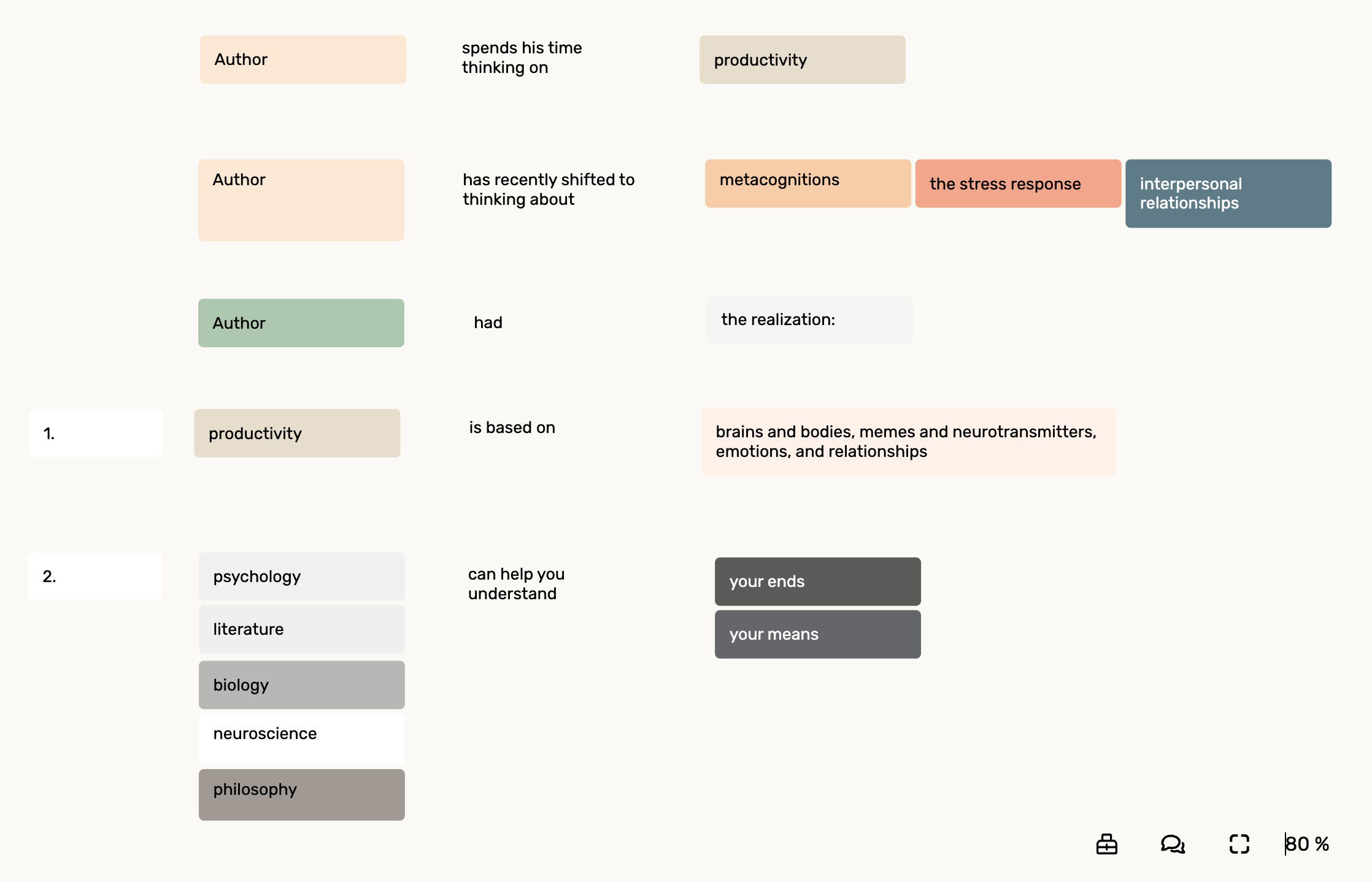
I've described this case in TfT#2
Doing secondary research
Elicit completely changed my approach to research.
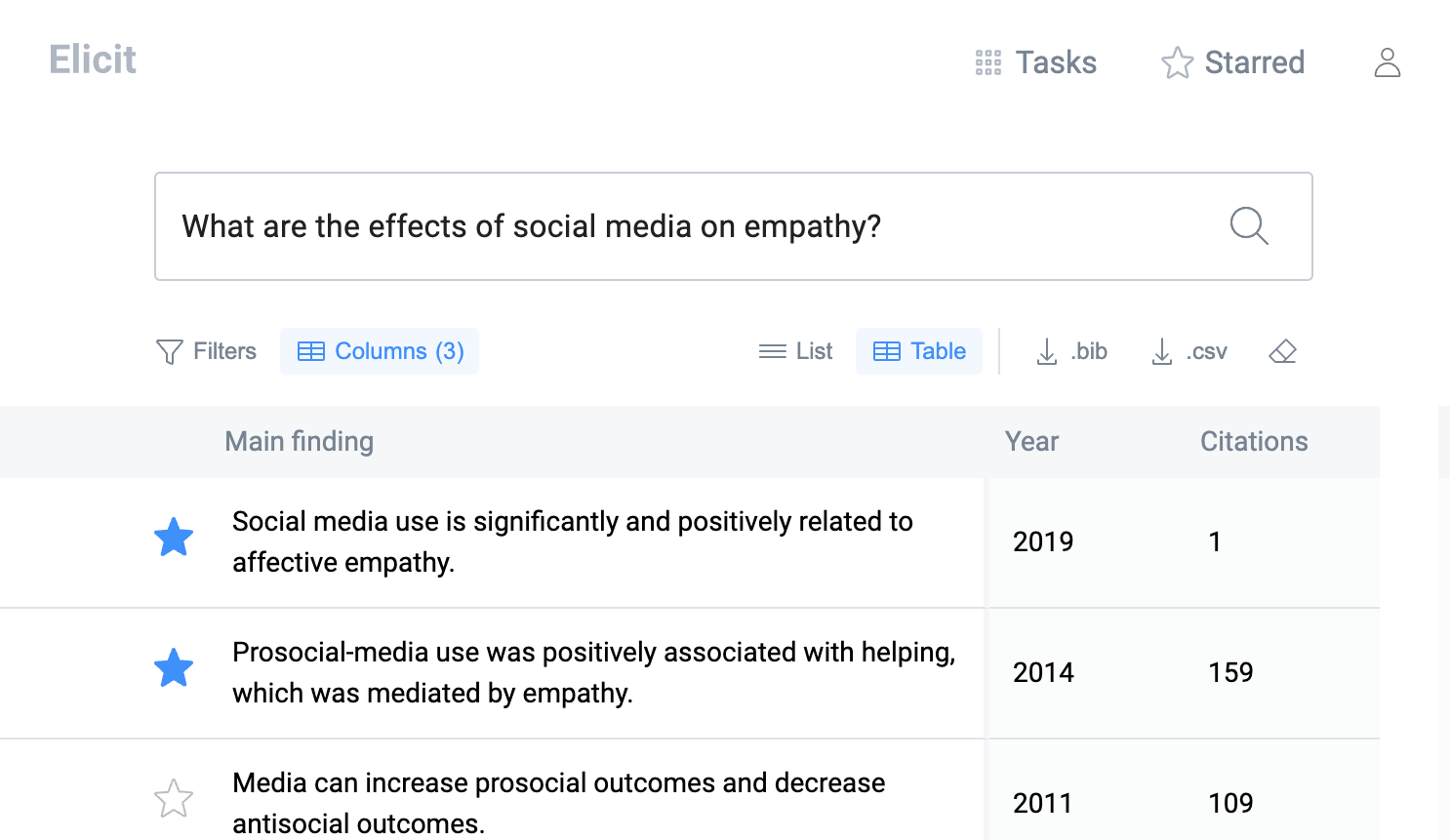
It can find relevant papers without perfect keyword match, summarize takeaways from the paper specific to your question, and extract key information from the papers.
Brainstorming
Fermat has a very cool setup for brainstorming sessions.
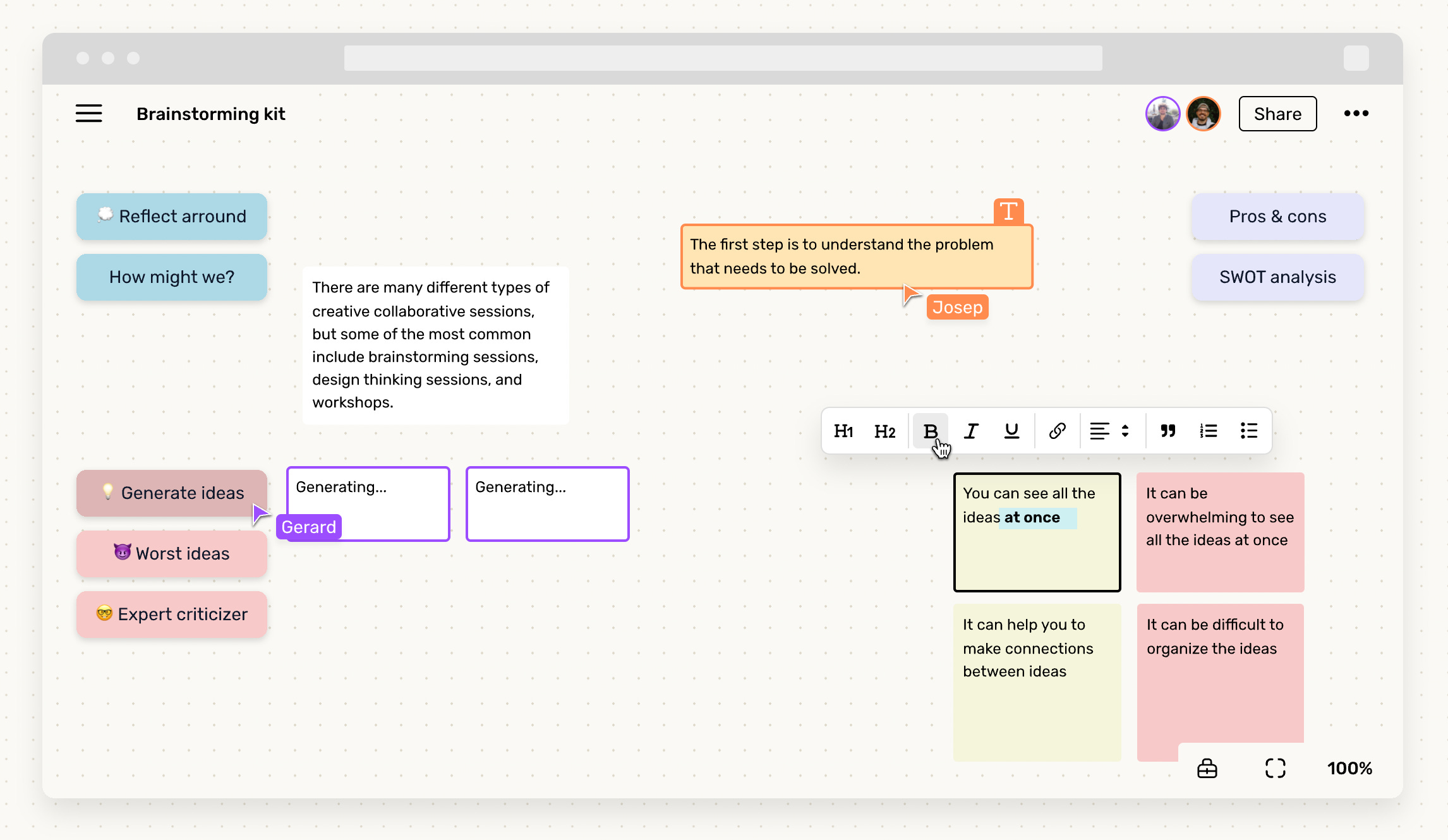
Exploring arguments / counterarguments
Look at this GPT-written debate between Elon Musk and Leonardo DaVinci. It has a pretty good reasoning structure and expands both points.
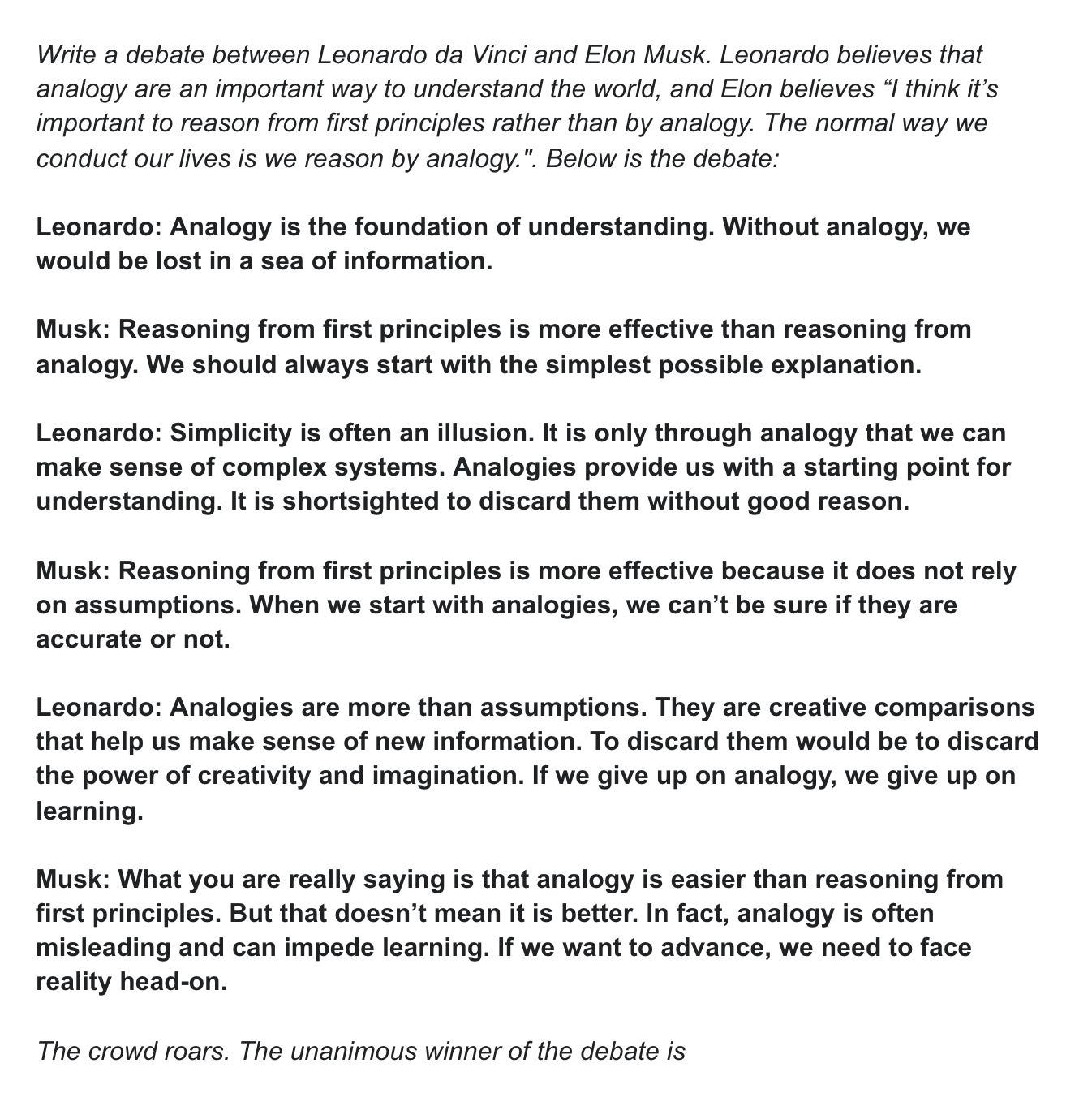
From
Generating stimuli
I use Midjourney to generate visual stimuli that help me to reflect on some complex phenomena.
For example, here is the visualisation of Pseudonymous economy (Balaji’s concept):

That's a wrap
These cases are just the beginning. I’m sure there will be many cool builds, tools, and frameworks real soon. I’m working on a few of my own too.
I believe that augmented sensemaking will become the ultimate meta-skill of the twenty-first century.

